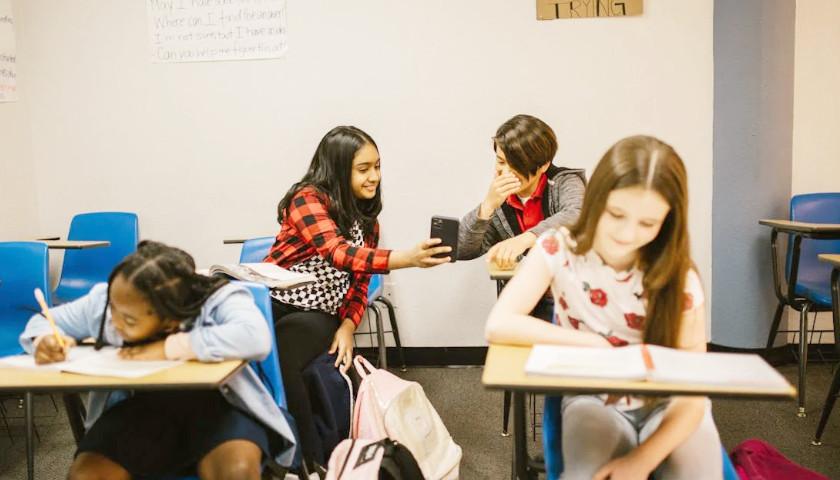by J.D. Davidson
Public school districts in Ohio could soon have access limited to school-issued computers used by students and monitoring students’ web-browsing activity during non-school hours.
A bill that recently unanimously passed the Senate and began hearings in the House would also prohibit technology providers from using educational data to market or advertise to students.
“With rapid expansion of school-issued devices, school districts across our state and nation began to install surveillance software to watch online interaction in an attempt to keep students on track with their studies,” said Sen. Stephen Huffman, R-Tipp City. “However, these surveillance programs advertise that teachers and administrators have access to remote control of these devices, even after school has ended for the day.”
The bill would prohibit, with some exceptions, schools or tech companies from using location-tracking of students, monitoring audio or visual receiving, transmitting or recording features or keystrokes and web activity.
It does allow those things for noncommercial educational purposes, such as instruction, tech support, and exam proctoring. It would be allowed under a judicial warrant, a missing or stolen device, a threat to life or safety, compliance with state or federal law, or participation in federal or state funding programs.
If a student’s school-issued device is accessed based on one of the exceptions, parents must be notified within 72 hours.
“Everyone deserves the right to privacy and students are no different,” Huffman said. “Our children need privacy to express themselves, and it should be left to parents, not tech companies, to monitor our children’s online presence.”
The ACLU of Ohio also supports the bill but wants more.
“The ACLU of Ohio does have two general suggestions we believe would make SB29 even more critical regarding the protection of student privacy,” testified Gary Daniels, chief lobbyist of the ACLU of Ohio. “The first is to expand SB29 to all K-12 schools, including private ones. The second is protection against the unreasonable search and seizure of student-owned devices by school staff.”
There has been no opposition testimony in the Senate or the House.
– – –
An Ohio native, J.D. Davidson is a veteran journalist with more than 30 years of experience in newspapers in Ohio, Georgia, Alabama and Texas. He has served as a reporter, editor, managing editor and publisher. Davidson is a regional editor for The Center Square.









